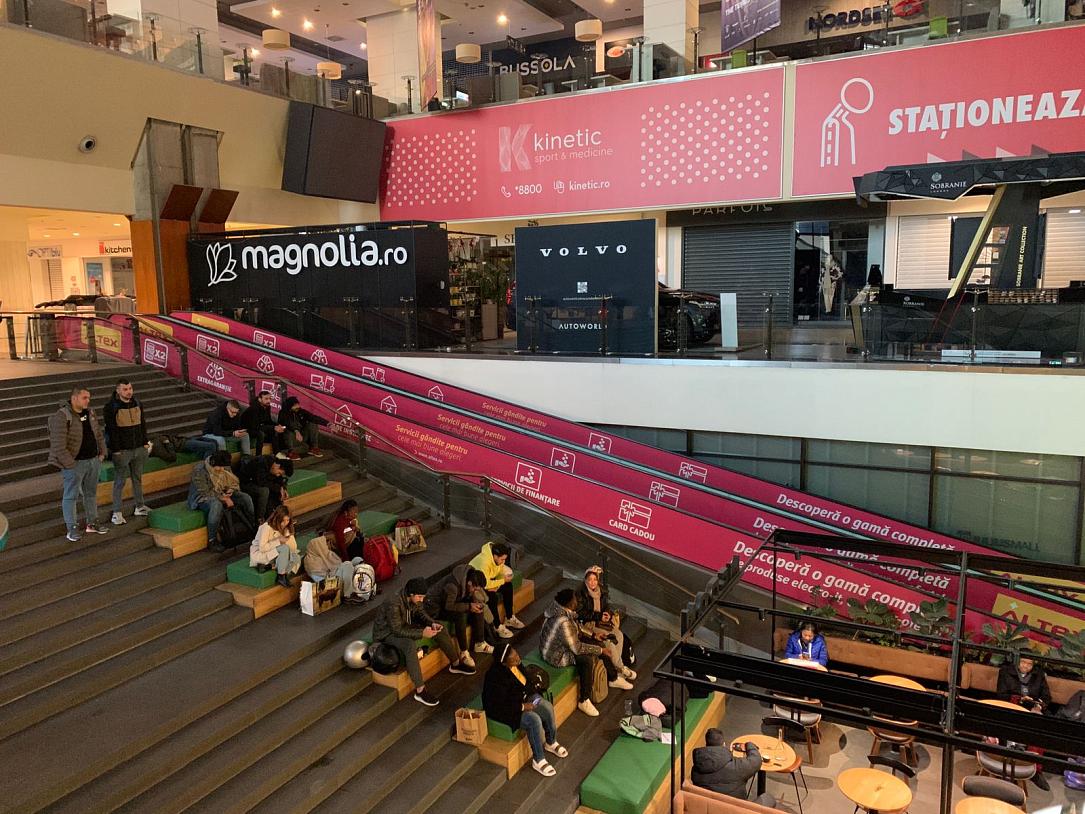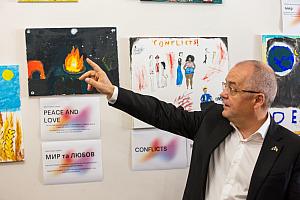Cluj-Napoca internationals host meeting with immigration office on its overworked conditions. A sigh of relief for the community?

Cluj-Napoca international council, through the Romanian Institute for Peace (PATRIR), held a meeting with the General Inspectorate for Immigration (IGI), earlier last weekend, on October 28.
Several critical topics were brought to attention by participants coming from Palestine, Jordan, Cameroon, Chile, Ecuador, Iraq, Moldova, Haiti, and Ukraine, including the overworked and understaffed conditions at the IGI office in Iulius Mall in Cluj, the bureaucratic delays in Bucharest that push migrants to stay illegally in Romania, and the systematic stereotyping against the African community.
Kai-Brand Jacobsen, PATRIR president, says that the meeting – the eighth of its kind under the Migrant Voices Heard project – is an important cornerstone for the international community that, for the first time, has a dedicated permanent body to help them identify their needs and overall improve their life quality here.
“The representative from IGI provided clear information that is needed by the international community. The meeting also made clear that to achieve change we need to create a coalition for change, bringing together the international citizens in Cluj with local and international businesses and companies who rely upon international workforce, consulates, embassies, and civic organizations in the community, together to advocate directly to the authorities in Bucharest on bringing about urgent and necessary change here. IGI needs more staff, more hours, and more support. The decisions for those have to come from Bucharest,” he told Romania Insider.
Local authorities and other institutions, including the League for the Defense of Human Rights (LADO) Cluj, the Directorate of Social and Medical Assistance, Babeș-Bolyai University’s Faculty of European Studies, Mercy Corps NGO, and more, were also present during the two-hour session, which took place at Cluj International Hub and was supported by Cluj-Napoca City Hall albeit not present.
“They weren’t present because the main person was out of town, but we had a dedicated meeting with them before the international one. We shared the information. They recognize the importance of raising the issue and suggest that if the international community writes a letter to the mayor [Emil Boc], he will bring the issue to the prime minister,” he says.
In the past few weeks, foreigners had to stay overnight inside and on Iulius Mall’s terrace, where the IGI office is located, so they could reserve a spot on the next day to submit or renew their residence permits.
Boc says that the local authorities have no power in dealing with the issue but he is determined to bring it to the attention of the Bucharest authorities.
“I will pass [this on to], and I will discuss this situation with the national authorities to solve it. They told me before that being an external border of the EU, they have to pay attention to every detail, especially in the context of the Schengen inspection and control in Romania in this period,” he said, as reported in this Romania Insider story.
A source told RI that, while the issue has been raised for weeks, there is still a lot of work to be done as the immigration office still relies on two counters serving the entire city.
There was a slight improvement, however, as the source says that personnel from the gendarmerie law enforcement comes before the line for tickets opens to “ensure that there’s no chaos involved” and the office expands its service hours, especially for students. The initial hours to deposit documents started on the weekdays at 8:30 to 10:00 for EU citizens and 10:00 to 12:00 for non-EU, but for students, it continues until around 16:00 to 16:30.
“I’m hoping that the officer will be added, that’s for sure. Because one person can take 10-20 minutes, and when there are incomplete documents, that can disturb the queue,” the source adds.
“They’ve added more hours for students, sure, but they also have to open the service for document issuing at 14.00, which means there’s only one counter serving the students during those extra hours.”
(Photo: Rafly Gilang Pratama for Romania Insider)













